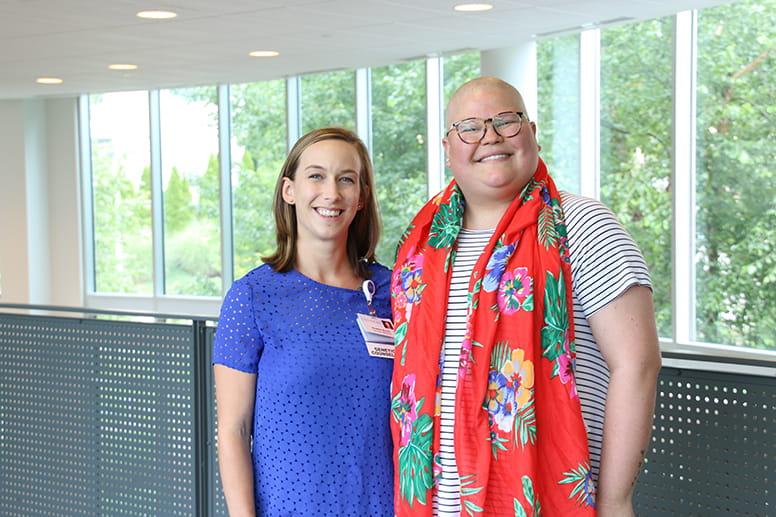Genetic counselors help those considering having genetic testing
Genetic counselors help people understand the results of genetic testing and even to decide whether or not they should undergo genetic testing in the first place. “Sometimes we talk people out of it,” said Heather Rocha, a 28-year- old who has been working at Geisinger as a genetic counselor for several years. The job of a genetic counselor is to help people assess whether there is a medical need for genetic testing in the first place, then to navigate the medical landscape for the testing process itself and, finally, to handle the emotions that can come with the results, Ms. Rocha said.
She said she has only met one patient who expressed regret at having genetic testing done. Most people, she said, find it satisfying, particularly in cases where there’s a family history of cancer, an area in which Ms. Rocha spends a lot of her time. That’s because people feel like they have an explanation to the perennial question “Why me?” Ms. Rocha said. Also, when there’s a family history of a disease like cancer and genetic testing reveals that there’s a genetic cause to the disease, it can often mean that the next generation can be tested and screened much sooner for the disease, preventing cancer and even saving lives.
Although there are many roads leading into being a genetic counselor, Ms. Rocha’s pathway — through a high-school sweetheart’s mother — might be unique.
That high-school sweetheart, Daniel, is now her husband and his mother is now her mother-in- law. She happens to be Geisinger’s Brenda Finucane, another genetics counselor and the associate director of the Autism and Developmental Medicine Institute (ADMI).
Ms. Finucane, who was working at the time as a genetic counselor in Elwyn, Pa., invited Ms. Rocha to come to work with her one day to explore the field.
“I did it, and I was sold,” Ms. Rocha said. Ms. Finucane’s job didn’t seem like work. She was really and truly helping families to understand why their children had problems with their development and behavior. She helped to get answers to the lifelong question “Why my child?” After her schooling, Ms. Rocha worked for a time in special education as a paraprofessional assisting third- and fourth-graders at an elementary school in Delaware, where she got experience working with kids with developmental disabilities.
Today, she spends about half her time working in autism research and with families dealing with developmental disabilities. The other half she spends working with the hereditary cancer clinic. “I have a special interest in pediatric hereditary cancer syndromes,” Ms. Rocha said.
“I love kids! When cancer is diagnosed in a young adult, it’s uncommon, but not unheard of. In kids, this is a different story. It’s important to me to help families wrap their heads around how something like this could have happened. Sometimes, it can help a family to cope with the diagnosis if we know why it happened,” she said. Heather Rocha can be reached at hrocha@geisinger.edu or at 570-214-3152

